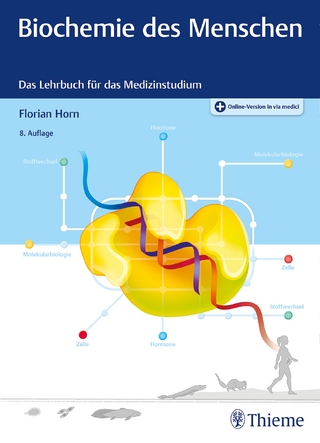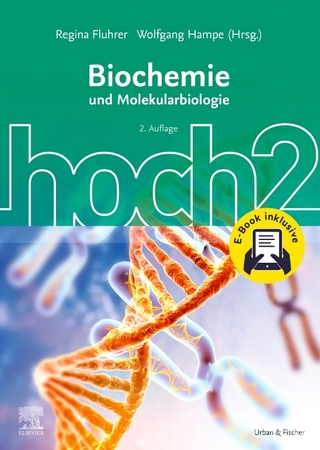
Conceptual Background and Bioenergetic/Mitochondrial Aspects of Oncometabolism
Academic Press Inc (Verlag)
978-0-12-416618-9 (ISBN)
Lorenzo Galluzzi is Assistant Professor of Cell Biology in Radiation Oncology at the Department of Radiation Oncology of the Weill Cornell Medical College, Honorary Assistant Professor Adjunct with the Department of Dermatology of the Yale School of Medicine, Honorary Associate Professor with the Faculty of Medicine of the University of Paris, and Faculty Member with the Graduate School of Biomedical Sciences and Biotechnology of the University of Ferrara, the Graduate School of Pharmacological Sciences of the University of Padova, and the Graduate School of Network Oncology and Precision Medicine of the University of Rome “La Sapienza. Moreover, he is Associate Director of the European Academy for Tumor Immunology and Founding Member of the European Research Institute for Integrated Cellular Pathology. Galluzzi is best known for major experimental and conceptual contributions to the fields of cell death, autophagy, tumor metabolism and tumor immunology. He has published over 450 articles in international peer-reviewed journals and is the Editor-in-Chief of four journals: OncoImmunology (which he co-founded in 2011), International Review of Cell and Molecular Biology, Methods in Cell biology, and Molecular and Cellular Oncology (which he co-founded in 2013). Additionally, he serves as Founding Editor for Microbial Cell and Cell Stress, and Associate Editor for Cell Death and Disease, Pharmacological Research and iScience. Guido Kroemer got his M.D. in 1985 from the University of Innsbruck, Austria, and his Ph.D. in molecular biology in 1992 from the Autonomous University of Madrid, Spain. He is currently Professor at the Faculty of Medicine of the University of Paris Descartes/Paris V, Director of the INSERM research team ‘Apoptosis, Cancer and Immunity’, Director of the Metabolomics and Cell Biology platforms of the Gustave Roussy Cancer Campus, and Practitioner at the Hôpital Européen George Pompidou (Paris, France). He is also the Director of the Paris Alliance of Cancer Research Institutes (PACRI) and the Labex 'Immuno-Oncology'. Dr. Kroemer is best known for the discoveries that mitochondrial membrane permeabilization constitutes a decisive step in regulated cell death; that autophagy is a cytoprotective mechanism with lifespan-extending effects; and that anticancer therapies are successful only if they stimulate tumour-targeting immune responses. He is currently the most-cited cell biologist in Europe (relative to the period 2007-2013), and he has received the Descartes Prize of the European Union, the Carus Medal of the Leopoldina, the Dautrebande Prize of the Belgian Royal Academy of Medicine, the Léopold Griffuel Prize of the French Association for Cancer Research, the Mitjavile prize of the French National Academy of Medicine and a European Research Council Advanced Investigator Award.
1. The metabolic alterations of cancer cells 2. Autophagy and cancer metabolism 3. Regulation of cancer metabolism by oncogenes and tumor suppressors 4. Crosstalk between cell death regulation and metabolism 5. Techniques to monitor glycolysis 6. Measurement of enolase activity in cell lysates 7. Extracellular flux analysis to monitor glycolytic rates and mitochondrial oxygen consumption 8. Conventional techniques to monitor mitochondrial oxygen consumption 9. Combined high-resolution respirometry and fluorometry. Validation of safranin for determination of mitochondrial membrane potential. 10. Kinetic analysis of local oxygenation and respiratory responses of mammalian cells using intracellular oxygen-sensitive probes and time-resolved fluorescence plate reader 11. 13C isotope-assisted methods for quantifying glutamine metabolism in cancer cells 12. Measurement of fatty acid oxidation rates in animal tissues and cell lines 13. Methods to assess steroid hormone induced lipid accumulation in cancer cells 14.Use of chemical probes to monitor mitochondrial ROS production by fluorescence dyes for flow cytometry and spectrofluorometry 15. Rapid methods to monitor mitochondrial and cellular ROS production by fluorescence microscopy and fluorometry 16. Genetically encoded redox sensors in biomedical science 17. Real time measurement of metabolic states in living cells using genetically encoded NADH sensors 18. Use of genetically encoded sensors to monitor cytosolic ATP/ADP ratio in living cells 19.Methods to monitor and compare mitochondrial and glycolytic ATP production in cells 20. Measurement of ADP-ATP exchange in relation to membrane potential and oxygen consumption in mitochondria with improved calibration 21. Analysis of hypoxia-induced metabolic reprogramming
| Reihe/Serie | Methods in Enzymology |
|---|---|
| Verlagsort | San Diego |
| Sprache | englisch |
| Maße | 152 x 229 mm |
| Gewicht | 1040 g |
| Themenwelt | Medizin / Pharmazie ► Medizinische Fachgebiete ► Onkologie |
| Studium ► 1. Studienabschnitt (Vorklinik) ► Biochemie / Molekularbiologie | |
| Naturwissenschaften ► Biologie ► Biochemie | |
| Naturwissenschaften ► Biologie ► Genetik / Molekularbiologie | |
| Naturwissenschaften ► Biologie ► Zellbiologie | |
| ISBN-10 | 0-12-416618-0 / 0124166180 |
| ISBN-13 | 978-0-12-416618-9 / 9780124166189 |
| Zustand | Neuware |
| Haben Sie eine Frage zum Produkt? |
aus dem Bereich


